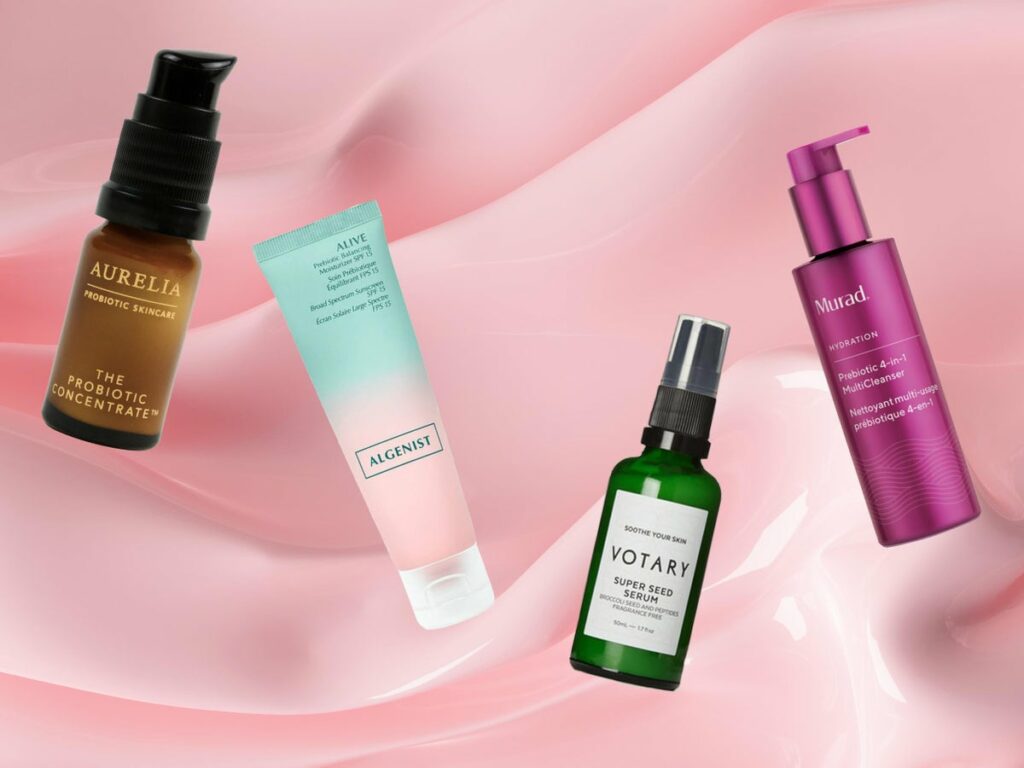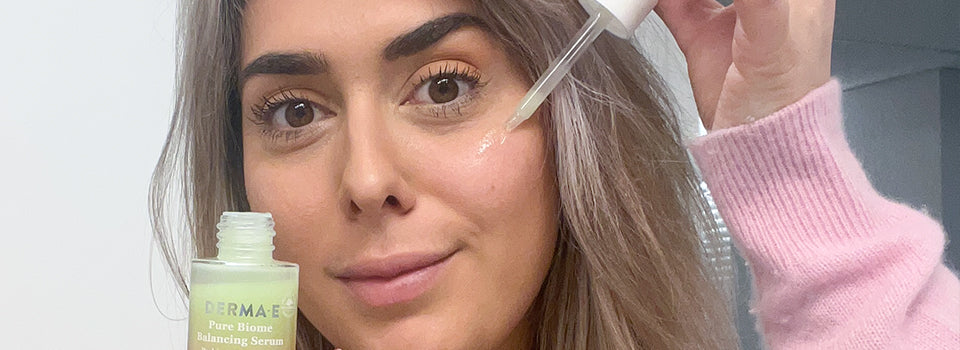The skincare industry is constantly evolving, bringing new trends and innovative approaches to the forefront. One such burgeoning trend is microbiome skincare, focusing on maintaining and enhancing the skin’s microbiome – a complex ecosystem of diverse microorganisms that live on our skin. These microscopic residents play a crucial role in skin health, contributing to its natural barrier function, immune response, and overall appearance. As science unravels the profound impact of the skin microbiome, it’s increasingly becoming a target for skincare interventions. Embracing this trend could open new pathways to achieving healthy, radiant skin, making microbiome skincare a potential game-changer in beauty.
What is the Skin Microbiome?
The skin microbiome refers to the trillions of diverse microorganisms, including bacteria, fungi, viruses, and mites, that inhabit our skin. This vast, invisible ecosystem is integral to our skin health and function, much like the gut microbiome impacts our digestive health. It contributes to various critical functions, such as skin barrier protection, immune response regulation, and warding off harmful pathogens. Interestingly, the composition of the skin microbiome varies across different areas of the body, influenced by factors like pH, moisture, temperature, and sebum content. Understanding and nurturing the skin microbiome can potentially revolutionize skincare, driving the shift towards microbiome-friendly products.
Connection Between Skin Microbiome and Skin Health

The skin microbiome is pivotal for maintaining healthy skin. It serves as a protective shield, fending off harmful pathogens, and also assists in wound healing. The diverse microorganisms interact with our skin cells, influencing skin immunity and barrier function. When this microbial balance is disrupted, it can result in skin disorders like acne, eczema, and psoriasis. Inflammation and premature aging have also been linked to microbiome imbalance.
Therefore, promoting a diverse and balanced skin microbiome is crucial for skin health. Microbiome skincare embraces this concept, using ingredients that support and enhance our skin’s natural microbial communities, leading to healthier, more resilient skin.
How Does Microbiome Skincare Work?
Microbiome skincare works by nurturing the delicate balance of beneficial bacteria on our skin. These products often contain prebiotics, probiotics, or postbiotics to support our skin’s microbial diversity. Prebiotics are food for good bacteria, probiotics are live beneficial bacteria, and postbiotics are byproducts of bacterial fermentation, all aiming to boost the skin’s microbiome health. Rather than stripping away bacteria with harsh cleansers, microbiome skincare encourages a balanced microbial environment. This can lead to improved skin barrier function, reduced inflammation, and a healthier, more radiant complexion. By understanding and respecting our skin’s microbiome, we can better cater to its unique needs.
Microbiome Skincare Products in the Market

- Probiotic Skincare: Products like serums, moisturizers, and cleansers contain live cultures to help restore and maintain the balance of the skin microbiome.
- Prebiotic Skincare: Prebiotics nourish the good bacteria on the skin. Skincare brands are incorporating prebiotics into their formulas to foster a healthier skin environment.
- Postbiotic Skincare: These products contain beneficial byproducts from bacterial fermentation, such as enzymes and peptides, that have shown promise in soothing inflammation and improving skin health.
- Bacteria-infused Products: Some brands, like Mother Dirt, have products that directly apply beneficial bacteria onto the skin.
- Microbiome Testing Kits: Companies like Gallinée offer home testing kits to analyze the skin’s microbiome, providing personalized skincare advice based on the results.
- Microbiome-Friendly Sunscreens: Traditional sunscreens can disrupt the skin’s microbiome. New formulations are designed to protect from UV damage without compromising the skin’s microbial balance.
- Specialized Treatments: Products targeting specific skin conditions like acne, eczema, or rosacea take a microbiome-friendly approach, aiming to balance bacteria instead of eradicating them.
- Microbiome-Friendly Baby Products: Recognizing the importance of microbiome health from an early age, brands are offering microbiome-friendly products designed for babies’ delicate skin.
- Skin Supplements: Oral probiotics are emerging as supplements that may promote skin health by balancing gut microbiome, as research suggests a connection between gut and skin health.
Pros and Cons of Microbiome Skincare
Benefits of Microbiome Skincare
- Balanced Skin Health: Microbiome skincare promotes a healthier and more balanced skin environment by nourishing beneficial bacteria. This can lead to improved skin texture, reduced inflammation, and less skin sensitivity.
- Targeted Treatments: These products may offer targeted solutions for certain skin conditions like acne, eczema, or rosacea, by taking a different approach that aims to balance bacteria instead of eradicating them.
- Personalized Skincare: With home microbiome testing kits, it’s possible to customize skincare products based on individual needs, potentially offering more effective solutions.
- Natural Approach: Microbiome skincare tends to favor natural and gentle ingredients that work with the skin’s natural processes rather than against them, reducing the risk of irritation or skin damage.
- Potential Anti-Aging Benefits: Some research suggests that a balanced skin microbiome might play a role in slowing the aging process, by maintaining skin barrier function and reducing inflammation, a major contributor to skin aging.
Drawbacks of Microbiome Skincare
- Emerging Field: Microbiome skincare is relatively new, and more research is needed to fully understand its potential and limitations. The effects might vary widely among individuals due to the unique nature of each person’s skin microbiome.
- Cost: Microbiome skincare products often come at a premium price due to the cost of research, development, and advanced ingredients.
- Regulation: Currently, there’s little regulation of these products and claims they make about their impact on the skin’s microbiome, potentially leading to misinformation.
- Compatibility Issues: Not everyone might experience benefits from microbiome skincare. For some, traditional skincare products may be more effective.
- Overreliance: Relying only on microbiome skincare products and disregarding other important aspects of skin health, like UV protection, proper hydration, and nutrition, might not yield the expected results.
Related: Best Skincare routine for all skin types.
How to Incorporate Microbiome Skincare into Your Routine?

- Assessment: Begin by assessing your current skin condition and needs. Consider any specific issues like dryness, acne, or sensitivity.
- Research: Look for microbiome-friendly products that address your specific skin concerns. Read reviews and ingredient lists to make informed choices.
- Gradual Introduction: Incorporate these products slowly into your routine. Start with one product, and observe its effects before adding another.
- Gentle Skincare: Avoid harsh cleansers that can disrupt your skin’s microbiome. Opt for gentle, pH-balanced cleansers instead.
- Maintenance: Consistency is key in skincare. Regular use of these products over time will yield the best results.
- Professional Advice: Seek guidance from a dermatologist if in doubt.
The Future of Microbiome Skincare
The future of microbiome skincare hinges on ongoing research and understanding of the skin’s microbiome. As studies continue to unearth the significant role that our skin’s bacteria play in maintaining skin health, the relevance of microbiome skincare appears to extend beyond just a fleeting beauty trend. Scientists and skincare experts are leaning into this research, developing more innovative products that cater to a diverse range of skin types and concerns. Simultaneously, consumers are becoming more educated and discerning, seeking out products that not only enhance their appearance but also support their overall skin health.
However, the key to longevity of this trend lies in empirical evidence. As long as there is continued scientific support for the efficacy and benefits of microbiome skincare, it will likely evolve and grow rather than fade into obscurity. In the end, whether a lasting trend or a fad, the ultimate decision lies in the hands of consumers and their experiences with these products.
Conclusion
The concept of microbiome skincare is revolutionizing the beauty industry by promoting a holistic approach to skin health. It embraces the idea that maintaining a diverse, balanced skin microbiome can lead to healthier and more radiant skin. With continuous research and development, the potential of microbiome skincare is enormous. It not only addresses specific skin concerns but also fosters a more personalized and effective skincare regimen. The adoption and success of this trend, however, depend on further scientific validation and consumer education. Ultimately, microbiome skincare is a promising field, suggesting a new frontier for innovation and growth in the beauty industry.


